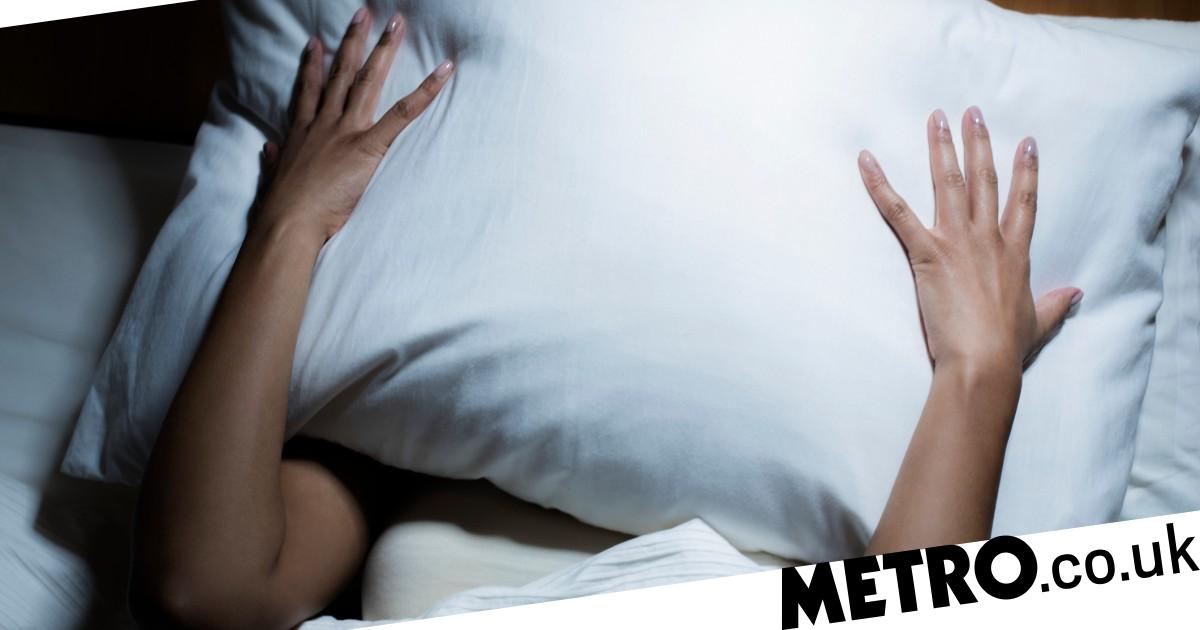
A lack of sleep may be the reason behind low confidence levels, suggests a new poll, with over a fifth of people feeling that sleep deprivation makes them question themselves.
The survey, conducted by drinks brand Twinings as part of its national Sleep Census, dives into the sleeping habits of the nation ahead of World Sleep Month in March.
The research reveals that around half of the nation aren’t getting enough sleep – with a quarter getting five hours or less a night, which is below the recommended seven to eight hours of shut-eye.
According to those surveyed, 15% stayed up late because of work worries while 19% stayed up too late watching TV and films.
Not only that, but only 9% of respondents felt like they enjoyed regular, undisturbed sleep while 91% experienced prolonged wake ups frequently.

However, instead of focusing on getting back to sleep, nearly half of those waking up are turning to their screens, with nearly one in 10 tidying the house in the middle of the night.
Sleep deprivation is having a knock-on effect on mental and physical health, and there’s no surprise its affect people’s daily lives – and confidence.
People’s jobs and relationships are suffering due to poor sleep habits, with 14% saying they’ve been late for work and nearly one in 10 (9%) have called in sick after a bad night’s sleep.
Meanwhile, over a fifth of people (21%) said tiredness makes them question their appearance, abilities or decision-making.
According to sleep specialist and co-founder of Sleep School, Dr Guy Meadows, a consistent bedtime routine is ‘fundamental’ to help form ‘positive sleep habits.’
‘We should also try to avoid napping in the evening before going to bed,’ he said, ‘because it reduces the key sleep regulator, sleep drive’.
He also shared his top tips to help keep sleep habits healthy and feel on form for the next day:
Aim to have a regular sleep cycle throughout the week
Irregular sleep patterns can cause havoc to the body and lead to poor quality sleep, low energy and social jet lag.
Setting a ‘go to bed alarm’ each day can help to keep your sleep on track and aim to keep wake up times within 30 minutes every day to regulate patterns.

For those that socialise at the weekend, aim to wake up no later than one hour past your normal weekday wake time.
Embrace the five bedroom essentials
The survey revealed that the home environment is stopping 14% of the UK from getting enough sleep – try to keep the following in mind to improve this:
Darkening down helps to inform the body clock that the day is over and triggers the release of sleep-promoting hormone melatonin.
Have a dark bedroom and wear an eye mask, fitting shutters or blackout blinds if you need to and turn off any unwanted standby lights.
Check the room temperature is at cool 16-17 degrees.
Make sure to switch off the central heating at night and use multiple layers rather than a single duvet to allow you to quickly adjust your temperature.
Comfort is essential for sleep quality so make sure you choose a mattress and pillow combination that are the ideal for you.
Reduce noise by soundproofing your bedroom with lots of sound absorbing soft furnishings such as rugs, heavy curtains, and drapes on the walls.
Improve your bedroom air quality by growing naturally detoxifying plants such as aloe vera, or by keeping a window open to improve ventilation.
Do you have a story to share?
Get in touch by emailing MetroLifestyleTeam@Metro.co.uk.
Source: Read Full Article



